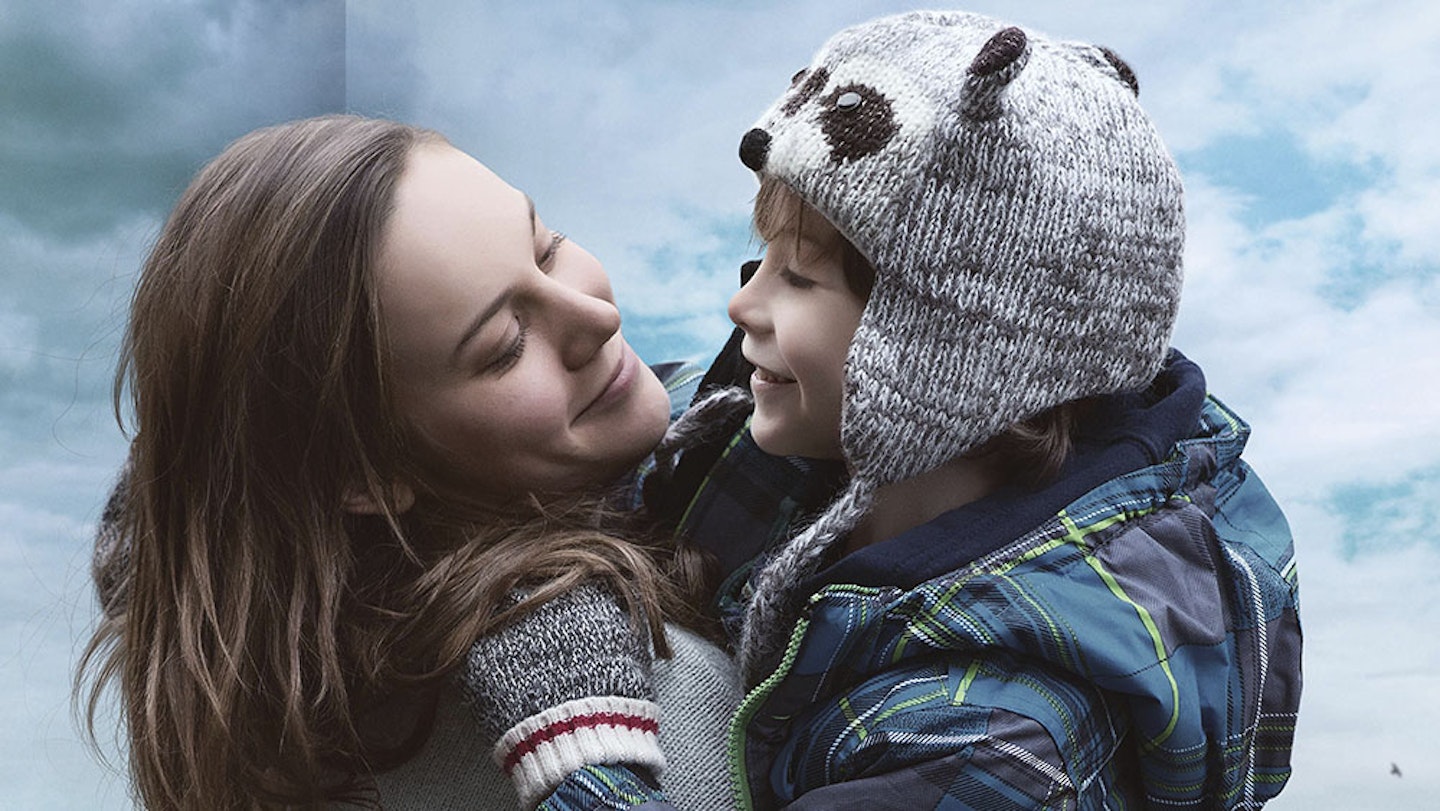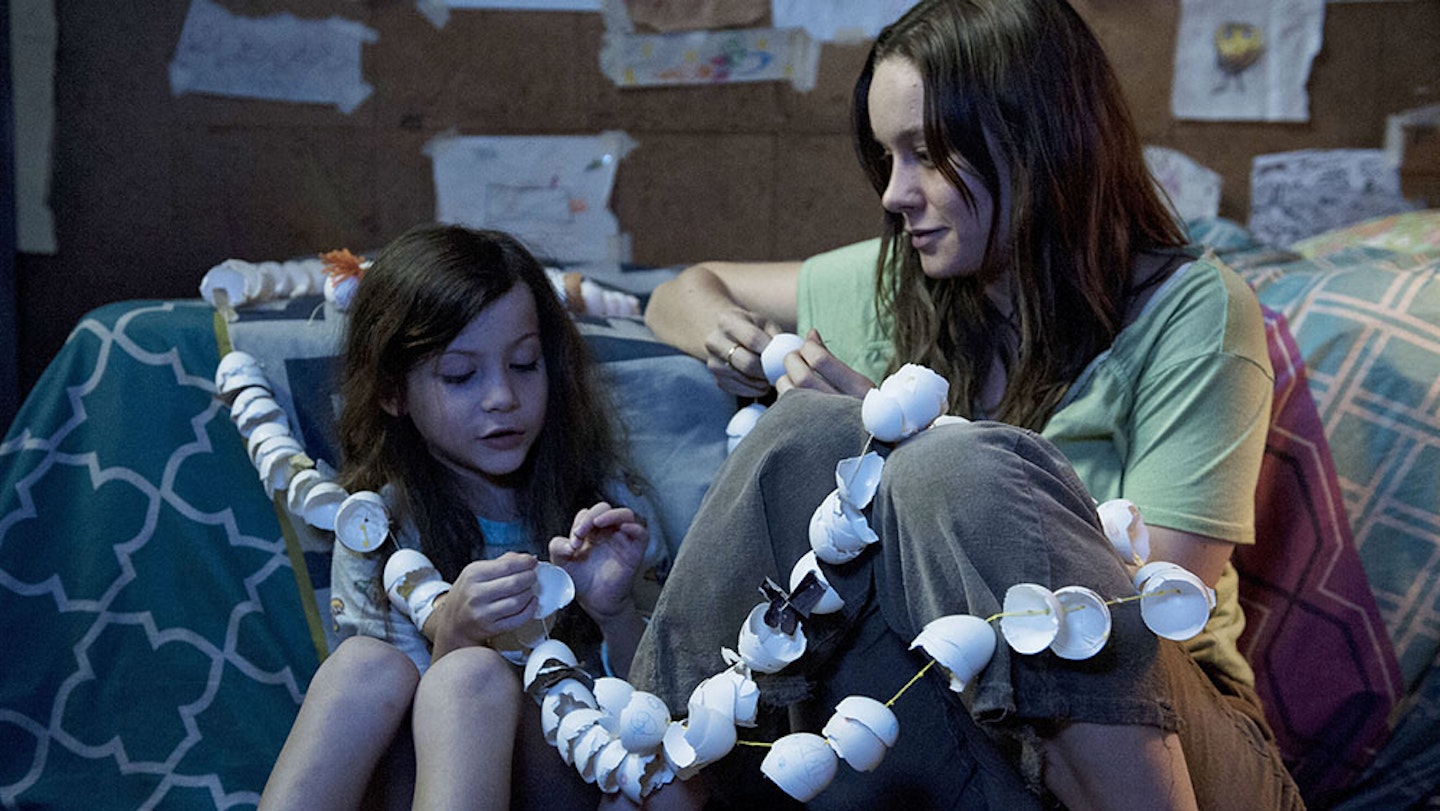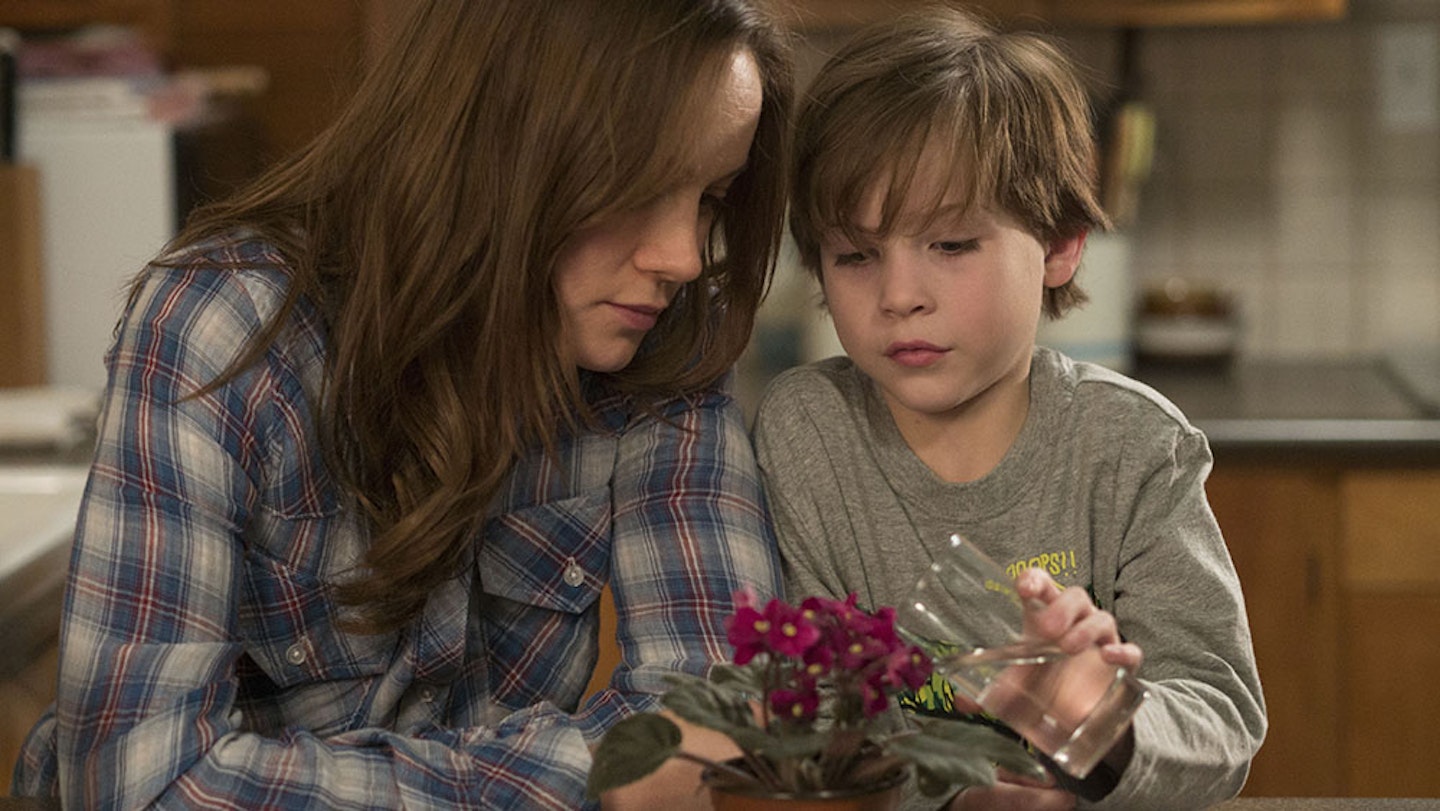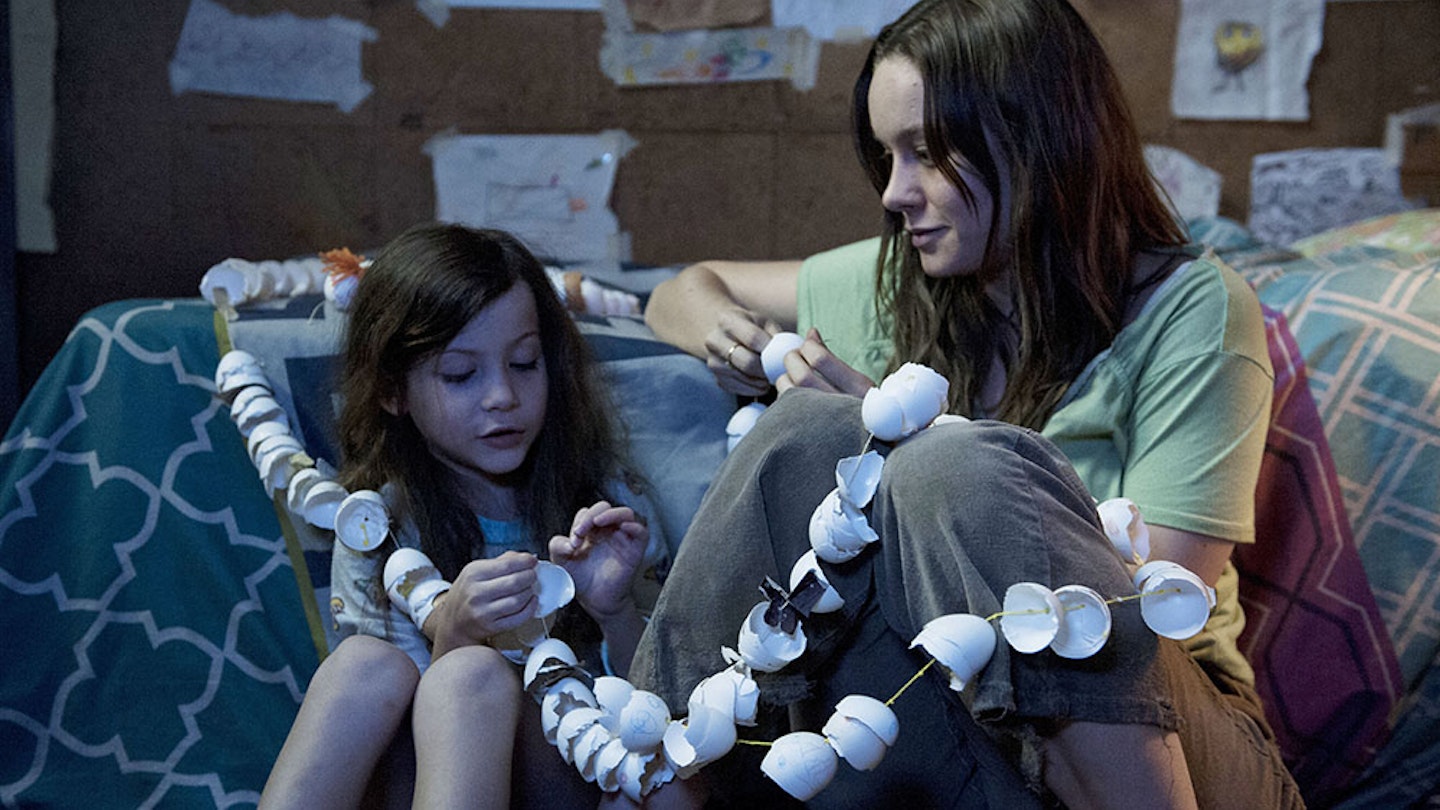(This interview contains mild spoilers for those who have not yet seen the trailers or read the book.)
It’s been hard to escape Brie Larson’s Oscar buzz over the past few months. Actually, scrap that - it’s been impossible. Last night’s Golden Globes cemented Larson as Best Actress frontrunner come next month’s Academy Awards, breaking away from the pack due to her part as ‘Ma’ in Lenny Abrahamson’s Room.
Following on from 2012’s What Richard Did and 2014’s Michael-Fassbender-with-a-papier-mâché-head bonkers-fest, Frank, Abrahamson’s fifth film is an adaptation of Emma Donoghue’s 2010 novel. The unconventional fairy tale may revolve around abduction and mental illness, but is, in Abrahamson’s own words, "the most optimistic film that I’ve made".
We sat down with the director to discuss the revelatory Jacob Tremblay, how the story would have looked from Ma’s perspective, the correct way to market the film, and much, much more.

Room has many twists and turns. How much were you and (author/screenwriter) Emma Donoghue involved with keeping spoilers to an absolute minimum?
We were consulted. I spoke a lot with A24 who are our American distributors and were the first to release, and that’s where the big discussions happened about how we market it. And initially I was uncertain about giving away so much of what happens in the film, but it’s not actually a film about imprisonment, it’s ultimately a film about escape and release and moving from the small spaces of childhood into the bigger world of adulthood. And to say, for example, ‘Just trail it with images of the room’, would be really a false version of what the film is. It’s not a ‘will they or won’t they survive’ story, it’s a ‘what does it mean to have to go through this huge transition and what is it that the film is really about’. And the answer is that it’s about the love between a mother and a son, and that story occurs through the whole movie. So I think it’s right.
I would add that if you could just guarantee by pass of law that every person had to go and see the film, then the ideal thing is always not to know anything about it. But I think if people are left with the impression that this is a grim story of imprisonment and abuse, then so many people who would get a tremendous amount out of this film just wouldn’t go and see it. So I think the decisions have been pretty good.
Room can be described as a coming of age tale about a child who is far too young to come of age. How do you sensitively protect a young boy who is acting out these things?
Well, the great thing is that the story itself, in the story itself, Jack doesn’t understand what’s really going on. So Jack in the story doesn’t see anything, literally doesn’t see what Old Nick does to his mother. And whatever deal she’s struck with Old Nick when Jack came along - and presumably it’s of the form of, ‘If you never come before nine o’clock’, because you see her checking her watch, ‘and if you never interact with my boy - here’s how it’s going to work, then I will be more compliant’. That’s what we always talked about. And that meant that Jake didn’t have to film around anything awful. And in fact the audience doesn’t have to see it either, because we’re with him.
It’s ultimately a film about escape and release and moving from the small spaces of childhood into the bigger world of adulthood.
And then you ask, well, okay, but this is a very bad character this Old Nick, but nobody needs to explain to a kid that some people are just baddies. I mean that’s like every fairy tale ever. So for him, it was just this bad guy who wanted to own them, you know, lock them up. Again, it was a story that he instantly related to and never asked any other questions.
My view generally is that children are far more sensitive to the dark parts of life, even kids who grow up in normal families in normal places, they are very aware of the shadowy things, either within families or broader. But they know that that’s not for them. They don’t want to inquire into it. And it’s a bit like kids and Santa Claus. They may suspect, but they don’t want you to have the conversation with them, not until they’re ready for it.
Stephen Rennicks’ score conjures up a much bigger world for Jack than we know is there. How important was it to get the score just right?
Really important, particularly in the first half. And I think the combination of small elements of voiceover, none of which are directly related to what you’re watching, they’re more kind of general musings from Jack or iterations of his favourite things or, you know, the sort of things that kids talk about. Those small elements of voiceover and the slightly non-linear images that go with them and Stephen’s score are the things which anchor you to Jack in the telling of this story, particularly in the first half. And it was so important that the music noted and respected that optimism and that hopefulness of a child but it was also adult enough not to clash stupidly with the reality of what you’re watching. So it was a very, very delicate musical balance.
The earlier parts of the film are an unconventional fairy tale through Jack's eyes. Can you imagine Room through Ma's eyes?
It’s funny. Emma said that people used to say to her, ‘Well, we don’t get as much of a sense of Ma as we’d like in the novel - did you ever think about telling the story again from her point of view’, and she said, 'Well, this film is somewhat of an answer', because even though it is Jack’s story, film is such that point of view is not fixed. Within the same scene we drift between one character’s world, come back to another’s, and so I think we do get more of a sense of what Ma’s experiencing. But we can’t live in that. And also it doesn’t lead to a film about anything other than the crime, in a way. And we always felt that if it’s a story of a crime then you’re interested in the villain and the victim. We’re not interested in the villain. And we’re not interested in Ma and Jack as victims. We’re interested in them as people. So in that sense that whole aspect of the story which is profoundly present, obviously, it’s what gives it its charge, but it’s not the subject of the film.

There are so many embellishments within the room: the egg snake, etc. Is it true that Brie and Jacob made them together?
They made most of the stuff inside. It was one way of getting them to spend time together outside of formal rehearsal. So they made lots of the stuff: loads of the drawings, loads of the mobiles, it was great to do that.
How did you get them to that sense of comfort with one another?
Got them to be with us early, three weeks before we started shooting. Found ways of having them hang out with each other that were very low pressure for Jake, so we’d all go out for pizza, then Brie would sort of knock upstairs because she was living in an apartment downstairs and sort of hang out with him and his mum or dad depending on who was with him, play Lego with him, bond about Star Wars which they’re both obsessed with.
Brie’s this really warm, lovely person and part of the casting process was to find somebody who’s not only a brilliant actor, but a great person and a warm person and whose process does not involve, you know, running back to the trailer to compose themselves. It’s got to be a very robust and generous and very kind of grounded actor. And she’s all those things. She’s lovely, so in a way it’s not very surprising that this little boy just thought she was great! He just thought she was wonderful. And it was lovely because you can’t manufacture that, so you can’t impose that on set. But even then, it was still a few days into shooting before I was able to look at the material we were getting and say, ‘Yes, I absolutely believe this relationship now’.
It starts in a very dark place, but where it goes is extremely different, I think it’s not where people expect it to go.
It’s hard to escape the Oscar buzz right now. It’s your first proper dalliance with awards season. Does it affect you?
It does affect you. I don’t believe anybody who says it doesn’t. I think it can affect people in different ways. I think you could probably get too interested in it and too concerned about it and then subsequently design all your projects whether consciously or not with that in mind and that would be death. I don’t think I’m going to do that. But, you know, I’d never enter my child into a baby pageant, right? Just for anybody listening, I’m not saying that the two are equivalent! But let’s just say somebody strapped me down and put my kid into it, I would not be able to not want them to be loved, you know? So I don’t think competition and art sit that easily together, but there is, there are these really big awards out there. And some brilliant films have won them. And they make a huge difference to the life of the film. And they are, to an extent, the judgement of your peers. So it’s impossible not to care what happens to the film.
For me, it’s been an amazing introduction into that part of the industry, you know, and being on the full-throated publicity drive and this sort of campaign that we’re on and seeing how it works and how much work goes into it and the resources that need to go into it. It’s pretty extraordinary. And, you know, it’s something that I’m glad I’m experiencing because it’s just part of the big adventure.
Well, they say they start at Telluride..
Well actually it’s so funny, because our very clever American distributor A24 who are brilliant - as are StudioCanal - A24 said, ‘Okay, well, the ideal, right, not that this ever happens, is that you go to Telluride, it pops out of Telluride, you go to Toronto with a bit of a tailwind, audiences love it, and you win the audience award’. I mean, hahaha. And then that’s pretty much exactly what happened.
What with this and What Richard Did and, to an extent, Frank, your films aren’t all that fluffy. Do you have a process of separating from heavy subject matter?
I definitely have different sides and different impulses and interests as a filmmaker, but I'd say, you know, in a funny way that even though the material can be challenging, for me the making of the work is the real release. Because it is craft and it’s what I do and what I care about. And if you feel you’re grappling with it successfully, if you feel what you’re doing is real or has value, then that’s exhilarating. I find ordinary life much harder than I find that. You know, in a funny way.
Since I’ve had children, a lot of that has changed and actually Room is, for me, a lot to do with my own children. My little boy was just about to be four when I read the novel and I had a one year-old and now she’s nearly five and he’s seven and it’s amazing, and that’s an incredible other side to things which allows me to just get out of my own head.
And there are some other projects that I am thinking about for the future which will be really, really challenging. But for me they are the ones that are worth putting the effort into, you know? And for me there’s a joy in that. And certainly a joy in Room as a film and it’s a very uplifting film. So actually for me it’s the most life-affirming film I’ve made. It starts in a very dark place, but where it goes is extremely different, I think it’s not where people expect it to go. So I see it as the most optimistic film that I’ve made.

This film is both life-affirming, as you just mentioned, and soul-destroying. How do you personally want the audience to feel when the credits roll?
I think I want them to feel like they have really met these two people. Really in some way that life never affords the opportunity, rarely affords the opportunity to have a real encounter with other people. It’s so hard because, you know, cinema and art generally is a place where one’s personal interest in an interaction is gone, it’s this pure encounter. And I think I would like people to come out and if they’ve got kids, just celebrate them, or if they’ve been a child, or their own parents, to be cause to think about those things with a more open heart than you maybe normally would. I think somebody wrote in the States, ‘This could be the call your mom crying after the screening film of 2015’.
The film surprisingly isn't all that claustrophobic until we revisit room at the end. Did the filming process ever feel claustrophobic?
It certainly felt it when we were on set, because we really filmed in a room that small, we didn’t take the walls out, we struggled with it, there were a lot of people in there - it was hot and it was difficult. Funnily enough, in the same way that happens to the characters in the film, once we were outside we sort of missed it because we were back out in the buffeting cold weather of Canada and working with all the kind of irritating stuff that comes with filmmaking out in the world. And we also sort of longed for that safe certainty of our daily routine in the room.
What I’m really proud of is that we didn’t cheat at all in the way we filmed the first 45 minutes. The cameras are really inside a room really that small. And yet, because you’re sort of with Jack, you feel it as a whole world. Once you go back at the end, it’s like revisiting your childhood school or your old house. You’re just like, ‘God, did this life that in my memory is so rich and full, did it happen in this little room?’ And so that’s so much part of what the film’s about. And it was amazing that we didn’t do anything different except just walk in to it at the end. And it feels so totally different.
I think somebody wrote in the States, ‘This could be the call your mom crying after the screening film of 2015’.
How do you view Jack’s future post-room?
I think he’s okay. I mean, I think you expected that the transition will be hardest for him because he’s the one who’s never seen the outside world, but actually, as a child he’s been loved and relatively unafraid for all of his life. He is incredibly equipped to deal with that. The only thing he needs is his mother and the real tension in the second half of the film comes from whether that bond is going to survive. I think he’s okay. I think she will take a long time and will never be completely whole, but has taken the first steps towards affirming the value of living again in the outside world. So I think they’ll be okay.
And it’s funny, I’ve spoken to people who are familiar with some of the cases and I think people respond differently, but children, generally if they’re young enough, are like the doctor says, ‘Extremely plastic’.
Your next project sees you reteam with Domhnall Gleeson.
He’s brilliant. The Little Stranger is an amazing novel by Sarah Waters and I’ve been working with the very wonderful Lucinda Coxon who wrote The Danish Girl and she’s done brilliant work and we’re hoping to shoot next year. And it will be Domhnall Gleeson playing a doctor in the late 1940s who comes from a very working-class background, sort of a grammar school boy, and then goes back to treat a family of gentry that he remembers from when he was younger. And it’s a brilliant meditation on class, again there’s quite a strong theme about how strongly children feel things and it’s a poltergeist story on top of all that. So it’s my first flirtation with, you know, those genre elements.
I love [Domhnall]. He’s a real friend as well. Frank was such a great experience with him and we have a great way of working together, I love his company. So having him lead a film will just be fabulous.
Room is released in UK cinemas on January 15. Read our review here.
